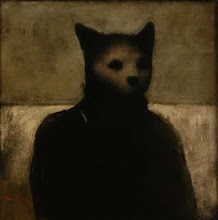 "A good cook goes through a knife in a year, because he cuts. An average cook goes through a knife in a month, because he hacks. I have used this knife for nineteen years. It has butchered thousands of oxen, but the blade is still like it's newly sharpened.”
"A good cook goes through a knife in a year, because he cuts. An average cook goes through a knife in a month, because he hacks. I have used this knife for nineteen years. It has butchered thousands of oxen, but the blade is still like it's newly sharpened.”--Zhuangzi
The butcher then goes on to explain how little effort is needed to be effective, and how by following the natural structural patterns within the animal—that of the tendons, bones etc.—no resistance is met by the blade.
"The joints have openings, and the knife's blade has no thickness,” he adds.
The observer is elated and leaves the butcher having learned a “principle of life.”
*see journeyman's blog Yielding in the Martial Arts.






